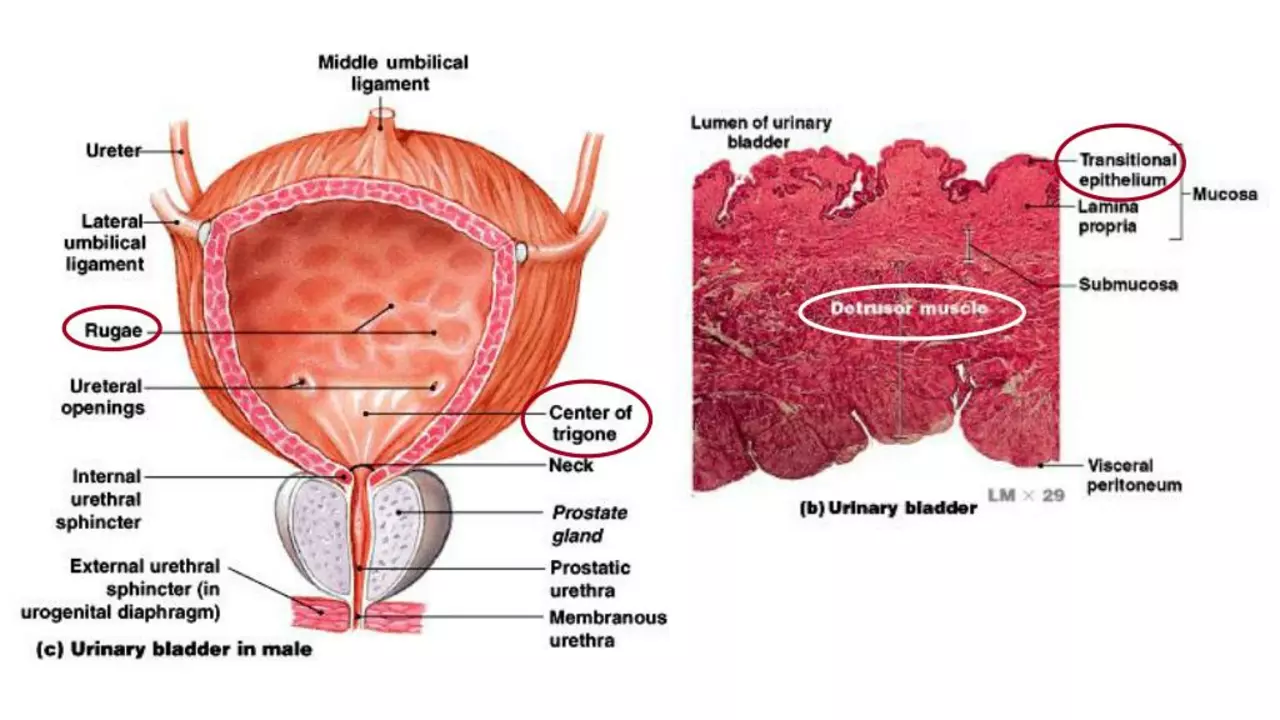Bladder Health: Practical Tips to Cut Urgency, Leaks and Night Trips
Waking up to pee, sudden urges, or spotting blood when you go — those are your bladder’s warning signs. You don’t have to accept them as normal. This page gives clear, useful advice you can use today: what causes bladder problems, simple fixes to try at home, tests your doctor may order, and when to get urgent care.
Common causes and what they feel like
Urinary tract infections (UTIs) usually bring burning, frequent peeing, and cloudy urine. Overactive bladder gives sudden urges and sometimes leakage without pain. Bladder stones or tumors cause pain, blood in urine, or a feeling you can’t fully empty. In men, prostate enlargement often causes weak stream and frequent night peeing. Some medications, caffeine, alcohol and bladder-irritating foods (spicy food, citrus) make symptoms worse.
Knowing the pattern helps: pain and burning point to infection; sudden urges and small leaks suggest overactive bladder; steady trouble emptying leans toward prostate or obstruction.
Quick self-help tips you can try now
1) Track what, when and how often you pee for 3 days. Seeing patterns helps your doctor and narrows causes. 2) Try bladder training: slowly increase time between bathroom visits by 10–15 minutes until you reach 2–4 hour gaps. 3) Do pelvic floor exercises (Kegels): tighten the muscles you use to stop urine, hold 5 seconds, relax 5 seconds, repeat 10 times, three times a day. That helps urgency and mild leakage. 4) Cut bladder irritants for 1–2 weeks: caffeine, alcohol, citrus, tomato, and artificial sweeteners. 5) Time fluids: drink most fluids by mid-afternoon and reduce before bed to lower night trips. 6) Double-void: after you pee, wait 20–30 seconds and try again to reduce leftover urine.
For sudden burning or cloudy urine, drink water and see a clinician — UTIs usually need antibiotics. For bothersome urgency that doesn’t respond to self-care, there are safe prescription options like antimuscarinics or beta-3 agonists your doctor can discuss.
Some over-the-counter aids can help short-term: phenazopyridine reduces burning for 48–72 hours but doesn’t treat infection. Don’t rely on it alone.
When to see a doctor or seek urgent care
Get immediate care if you have fever, severe lower belly or back pain, vomiting, heavy bleeding, very dark urine, or can’t pass urine at all. See your doctor within a few days if you have blood in urine, recurring UTIs, persistent leakage, or sudden changes in pee habits. Your clinician may order a urinalysis, urine culture, bladder ultrasound, or cystoscopy depending on symptoms.
Bladder problems are common and often treatable. Start with a simple diary and a few lifestyle fixes, and get help if symptoms are severe or don’t improve. Small changes can make a big difference in how you feel day to day.
